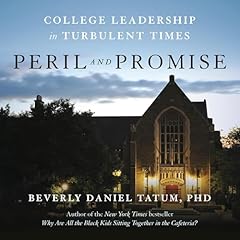
Why Are All the Black Kids Sitting Together in the Cafeteria?
And Other Conversations About Race
No se pudo agregar al carrito
Solo puedes tener X títulos en el carrito para realizar el pago.
Add to Cart failed.
Por favor prueba de nuevo más tarde
Error al Agregar a Lista de Deseos.
Por favor prueba de nuevo más tarde
Error al eliminar de la lista de deseos.
Por favor prueba de nuevo más tarde
Error al añadir a tu biblioteca
Por favor intenta de nuevo
Error al seguir el podcast
Intenta nuevamente
Error al dejar de seguir el podcast
Intenta nuevamente
$0.00 por los primeros 30 días
POR TIEMPO LIMITADO
Obtén 3 meses por US$0.99 al mes
La oferta termina el 29 de enero de 2026 11:59pm PT.
 Exclusivo para miembros Prime: ¿Nuevo en Audible? Obtén 2 audiolibros gratis con tu prueba.
Exclusivo para miembros Prime: ¿Nuevo en Audible? Obtén 2 audiolibros gratis con tu prueba.
Solo $0.99 al mes durante los primeros 3 meses de Audible Premium Plus.
1 bestseller o nuevo lanzamiento al mes, tuyo para siempre.
Escucha todo lo que quieras de entre miles de audiolibros, podcasts y Originals incluidos.
Se renueva automáticamente por US$14.95 al mes después de 3 meses. Cancela en cualquier momento.
Elige 1 audiolibro al mes de nuestra inigualable colección.
Acceso ilimitado a nuestro catálogo de más de 150,000 audiolibros y podcasts.
Accede a ofertas y descuentos exclusivos.
Premium Plus se renueva automáticamente por $14.95 al mes después de 30 días. Cancela en cualquier momento.
Compra ahora por $28.79
-
Narrado por:
-
Beverly Daniel Tatum
Walk into any racially mixed high school and you will see Black, White, and Latino youth clustered in their own groups. Is this self-segregation a problem to address or a coping strategy? How can we get past our reluctance to discuss racial issues?
Beverly Daniel Tatum, a renowned authority on the psychology of racism, argues that straight talk about our racial identities is essential if we are serious about communicating across racial and ethnic divides and pursuing antiracism. These topics have only become more urgent as the national conversation about race is increasingly acrimonious. This fully revised edition is essential reading for anyone seeking to understand dynamics of race and racial inequality in America.
Los oyentes también disfrutaron:




















Las personas que vieron esto también vieron:


















Comprehensive but dry
Se ha producido un error. Vuelve a intentarlo dentro de unos minutos.
A great overview
Se ha producido un error. Vuelve a intentarlo dentro de unos minutos.
inciteful. timely. practical.
Se ha producido un error. Vuelve a intentarlo dentro de unos minutos.
Amazing
Se ha producido un error. Vuelve a intentarlo dentro de unos minutos.
Essential
Se ha producido un error. Vuelve a intentarlo dentro de unos minutos.


